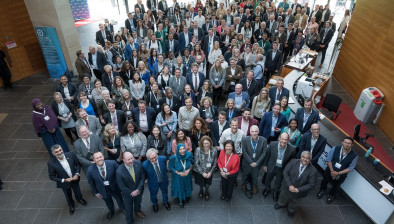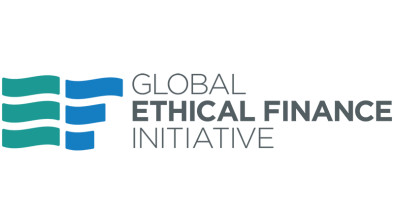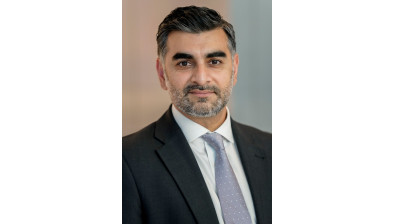Stark warning issued to delegates at the Ethical Finance Summit 2021

The sixth annual Ethical Finance Summit concluded yesterday, with “finance for nature” one of the key themes emerging from the conference, as biodiversity experts seek to broaden the terms of the climate debate to consider natural assets as well as carbon emissions.
More than 3,000 delegates from 100 countries attended the three-day summit held virtually from Edinburgh, including responsible finance specialists and representatives from several major financial institutions and energy companies, to participate in sessions exploring different elements of the summit’s theme, Financing a Sustainable Future: Climate and Beyond.
During the summit, Professor Sir Partha Dasgupta of University of Cambridge called for the creation of a global institution akin to the World Bank to manage the planet’s natural resources, with countries and companies “paying for the right to send huge ships with cargo across the Pacific or Atlantic” oceans.
Andrew Mitchell, founder and senior adviser of Global Canopy, urged investors to urgently address the world’s biodiversity loss crisis, warning delegates that “if we do not change the way we move our money, we will finance our way into extinction”.
Mr Mitchell also highlighted the need for a target and “a currency” to quantify the harm being done to the world’s natural assets, to bring the increasingly urgent issue further up the agenda: “In nature we don’t have a target and we don’t have a currency. We do have a target of ‘Do No Harm’ by 2030. What’s your pension fund doing? Ask your bank what they’re doing with your salary.”
An open letter to Alok Sharma, president of COP26, was also signed by some 40 financial institutions, urging Sharma to act immediately to deliver a deal that is not only unambiguous in delivering a fair set of nationally determined contributions (NDCs) but that also delivers credible time-bound transitions plans for reducing carbon intensity through pricing, taxation, and appropriate trading mechanisms.
COP20 president, Manuel Pulgar-Vidal, urged Sharma to “be the DJ” and build confidence for a successful climate change conference in Glasgow this November.
The International Monetary Fund warned how the Covid pandemic is threatening the United Nation’s 2030 deadline for achieving its Sustainable Development Goals, with the potential for long-term economic scarring to further worsen the picture.
A pioneering Islamic Finance and Principles for Responsible Banking report was launched by The Islamic Finance Council UK (UKIFC), in partnership with Malaysia based International Shari’ah Research Academy for Islamic Finance (ISRA) and GEFI, to assist and encourage active engagement in support of the UN Sustainable Development Goals (SDGs) by the global Islamic finance sector.
Omar Shaikh, co-founder and director of the Global Ethical Finance Initiative, conveners of the summit, said: “We knew coming into this, our sixth annual summit, that the issues we’d be exploring have all become even more pressing in the time since we last met.
“I’m pleased to report that this fact was reflected not only in the number of delegates attending and the quality and tone of the debate, but most importantly in the commitments to action that were made by various stakeholders.
“Put simply: we will not be able to achieve the UN’s SDGs without the collaboration of the global finance sector, so these commitments are crucial in the run up to COP26 and after, as we look beyond climate to the nature-based solutions that must be the next item on our collective agenda.”









